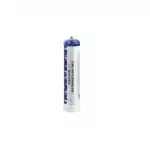For many of us, coffee is the liquid fuel we rely upon to kickstart our mornings and power through long days. Equipped with caffeine’s magic touch, we anticipate an invigorating jolt of energy and laser-sharp focus with every sip. However, what takes place when that expected rupture of energy becomes an unusual wave of drowsiness? If coffee has you scratching your head and yawning as opposed to buzzing with alertness, you’re not the only one.
This puzzling feedback isn’t as unusual as it appears. Recognizing what’s taking place inside your body could make all the distinction. From exactly how caffeine chemistry functions to misconceptions and false impressions, we’ll unload the factors behind the sensation and use some workable suggestions for those who locate coffee, making them drowsy.
Exactly How Does Coffee Generally Impact the Body?
To comprehend why coffee might be making you tired, we initially need to discover its typical technicians. Coffee is rich in caffeine, an all-natural stimulant that functions by disrupting adenosine, a neurotransmitter in the mind.
-
Adenosine and Wakefulness: Adenosine plays a vital function in your body’s sleep-wake cycle. Throughout the day, adenosine degrees accumulate, making you really feel drowsy. Throughout rest, these degrees reset, so you get up rejuvenated. Caffeine blocks adenosine from connecting to its receptors, postponing fatigue while making you really feel much more sharp and awake.
-
Increase in Dopamine and Adrenaline: Caffeine additionally enhances dopamine (the feel-good neurotransmitter) and boosts adrenaline, which adds to enhanced energy and focus.
Under perfect conditions, that double punch of adenosine obstructing and dopamine increases describes why your early morning mug assists in shaking off grogginess. However, what regarding when coffee has the contrary impact?

1. The Role of Caffeine Metabolism in Sleepiness
Caffeine Level Of Sensitivity and Genes
Your body’s capacity to metabolize caffeine plays a considerable function in exactly how it impacts you. This procedure is greatly hereditary. The liver enzyme CYP1A2 damages down caffeine, and variants in the genetics coding for this enzyme establish exactly how swiftly (or gradually) caffeine is refined.
- Fast Metabolizers: Individuals who metabolize caffeine fairly swiftly tend to feel its invigorating impacts quickly and might require greater dosages for continual performance.
- Slow Metabolizers: Slow metabolizers experience caffeine’s impacts for much longer durations. Nevertheless, this prolonged visibility of caffeine can, in some cases, bring about overstimulation and exhaustion signs, causing tiredness as opposed to energy.
The Adenosine “Rebound” Impact
The longer caffeine blocks adenosine from attaching to its receptors, the bigger the stockpile of free-floating adenosine comes to be. When the caffeine subsides, this built-up adenosine hurries to the receptors simultaneously, making you really feel also sleepier than prior to you had your coffee.
Pro Tip: If coffee leaves you really feeling worn out hours after usage, you might be experiencing an adenosine rebound.
Caffeine Resistance Degrees
Regular coffee enthusiasts might, ht at some point,nt construct a resistance to caffeine’s impacts. The body adapts to constant excitement by expanding more adenosine receptors. Tors In time, the very same cup of coffee that you made use of to perk you up could appear to have the contrary impact because of boosted receptor activity.

2. Misconceptions About Coffee and Fatigue
Misconception 1: Coffee Is Constantly an Energy Booster
Not everybody reacts to coffee similarly. While caffeine is widely known for advertising wakefulness, tiredness as an adverse effect isn’t unusual. Hidden variables like tension, rest starvation, or fatigue can worsen this response.
Misconception 2: Even More Coffee Amounts To Even More Energy
When you’re really feeling slow, it can be alluring to put on your own one more mug. Nevertheless, way too much caffeine in as well as brief time can generate jitteriness, anxiety, and tiredness. Overconsumption might overstimulate your central nervous system, leaving you drained pipes as opposed to invigorated.
Misconception 3: Coffee Maintains Everybody Awake during the night
Some people locate that coffee has soothing impacts as opposed to boosting ones, also if eaten at night. This might be because of hereditary distinctions or a body’s extremely acquainted connection with caffeine.
Actionable Insight: If you are just one of those uncommon people for whom coffee has a comforting, virtually sedative impact, take into consideration replacing your early morning brew with one more stimulant like tea or matcha.
3. Underlying Health Issues That May Exacerbate Sleepiness
Coffee-caused tiredness could additionally signify a hidden wellness problem. Right here are a couple of opportunities:
Dehydration
Coffee is a moderate diuretic, implying it can bring about a boost in peeing. If you’re not restoring shed liquids, dehydration could set in, which can trigger tiredness.
Tip: For every single cup of coffee, consume a glass of water to preserve hydration.
Adrenal Fatigue
Lasting overconsumption of caffeine can strain your adrenal glands, possibly resulting in “adrenal fatigue” While ruled out a clinical diagnosis, adrenal fatigue describes sensations of exhaustion and fatigue that could follow overwhelming your body with energizers like caffeine.
Blood Sugar Inequalities
Consuming alcohol coffee on a vacant belly can interrupt blood sugar degrees, particularly when coupled with sweet creamers or syrups. Changing blood sugar degrees can bring about an energy crash soon after usage.
Pro Tip: Set your coffee with high-protein or fibre-rich food to maintain blood sugar.
Anxiety or Anxiety
For people who currently experience raised tension or anxiety degrees, caffeine can magnify those experiences. The resulting overactivation of the nerve system might bring about sensations of fatigue not long after the first energy spike.
Focus On Mental Well-Being: Supplements like L-theanine (located in green tea) can neutralize caffeine-caused anxiety while advertising smooth, sustained energy.

4. External Factors Influencing Your Coffee Reaction
Poor Rest Quality or Rest Financial Obligation
If you’re working on little rest, coffee can do so a lot. As opposed to jolting you awake, it might enhance experiences of fatigue since your mind hasn’t had sufficient recuperation time.
Rest Tip: The objective for 7– 9 hours of quality rest each evening is to lower coffee reliance and its undesirable impacts.
Timing of Coffee Usage
Consuming alcohol coffee later on in the mid-day might hinder your body’s all-natural circadian rhythm. While it might perk you up temporarily, interrupting your rest cycle might leave you much more worn out in the future.
Sort Of Coffee
The design othe f coffee you consume might additionally influence your experience. As an example:
- High-Acidity Roasts: Some lighter roasts are much more acidic, which can aggravate the belly and add to physical pain or tiredness.
- Caffeinated Sugary Drinks: Specialty coffees packed with polished sugars usually bring about a post-consumption energy crash.
Change It Up: Try out various mixtures or readjust caffeine toughness to locate your ideal equilibrium.

5. How to Combat Sleepiness After Coffee
If coffee leaves you worn out as opposed to sharp, take into consideration these actions to readjust your routines:
1. Time Your Coffee Right
Enjoy coffee within an hour or more of waking as opposed to right away after turning out of bed. This protects against disturbance with your all-natural cortisol spikes, which come to a head soon after waking.
2. Examine Your Parts
Stick to 1– 2 mugs (200– 400 mg of caffeine) a day to stay clear of overwhelming your system. Excessive caffeine can backfire, making tiredness even worse.
3. Get Moving
As opposed to getting to for one more mug, take a brief stroll or obtain some sunshine. Exercise and direct exposure to all-natural light can improve energy degrees better than one more dosage of caffeine.
4. Focus On Hydration
An easy yet ignored remedy, consuming even more water can avoid caffeine-relevant dehydration and the tiredness that features it.
5. Explore Alternatives
If typical coffee does not function for you, offer choices like green tea, matcha, or herbal tea shot. These drinks usually use milder types of caffeine along with various other useful substances.
Dietary Consideration: Include adaptogens like ashwagandha or reishi to your regular for well balanced energy degrees without energizers.
Final Thoughts
Really feeling drowsy after consuming coffee could appear counterproductive, however comprehending the scientific research behind caffeine metabolism, adenosine, and private distinctions can clarify this perplexing sensation. From hereditary variables to way of living routines, there are a number of reasons that coffee cocannottimulate you the means it does others.
Instead of surrendering your cup of joe totally, make note of your body’s distinct requirements and reactions. Tiny changes to when, exactly how, and what you consume can make all the distinction. Keep in mind that coffee is most reliable as an enhancement to a well-balanced way of living that consists of correct rest, nourishment, and hydration.
If coffee still isn’t for you, do not worry! There are lots of various other means to remain sharp and invigorated throughout the day. Whether you stick to your typical brew or endeavour right into brand-new choices, the trick is discovering what absolutely functions for you.













